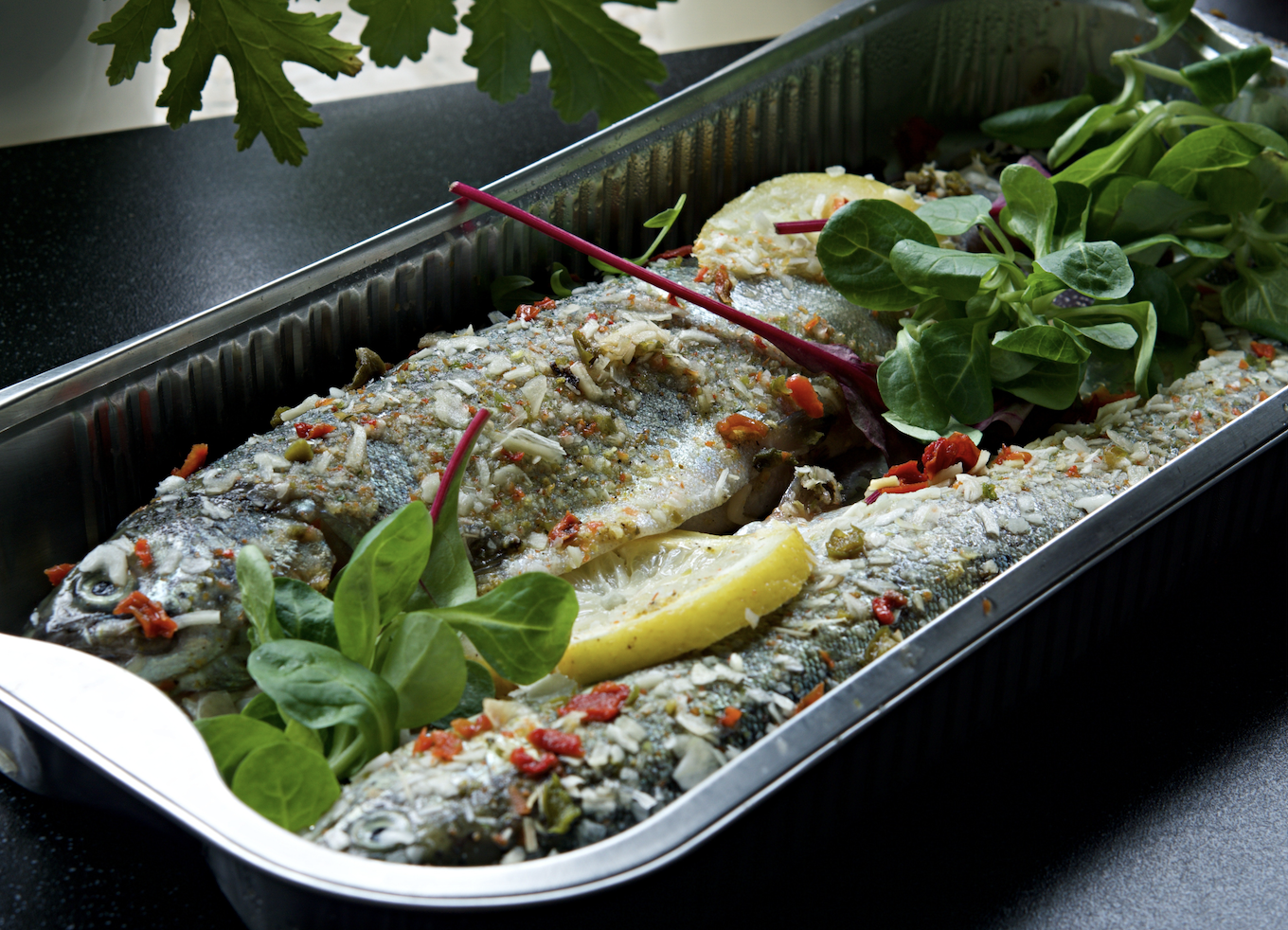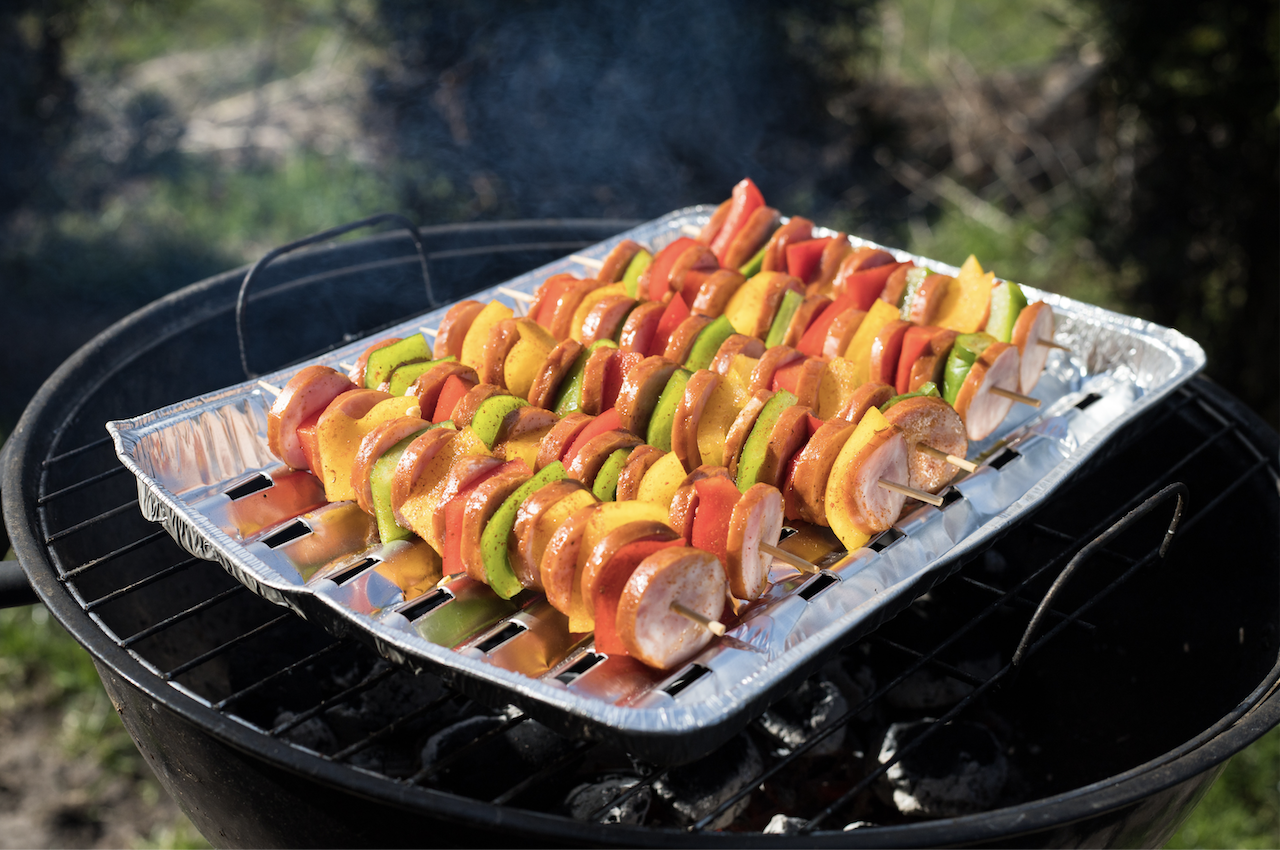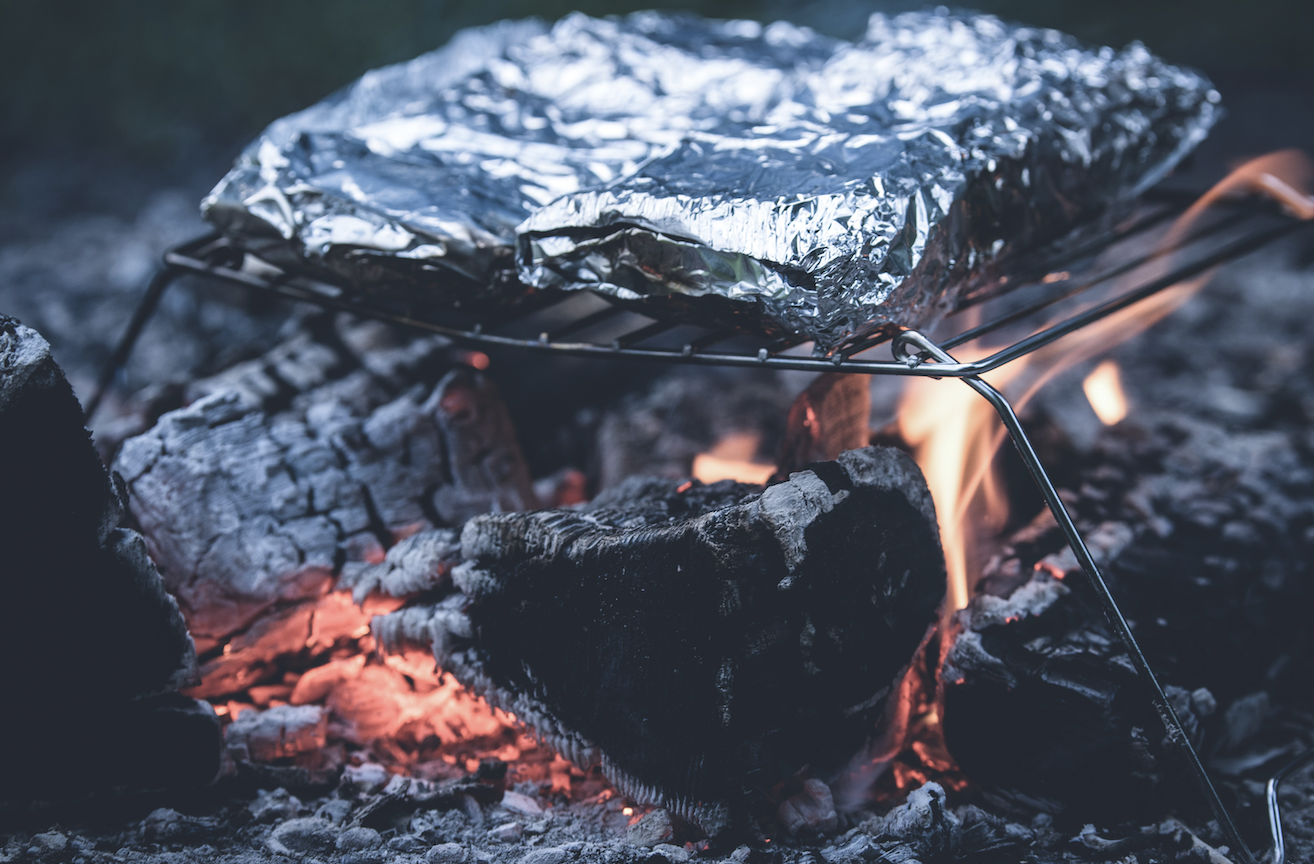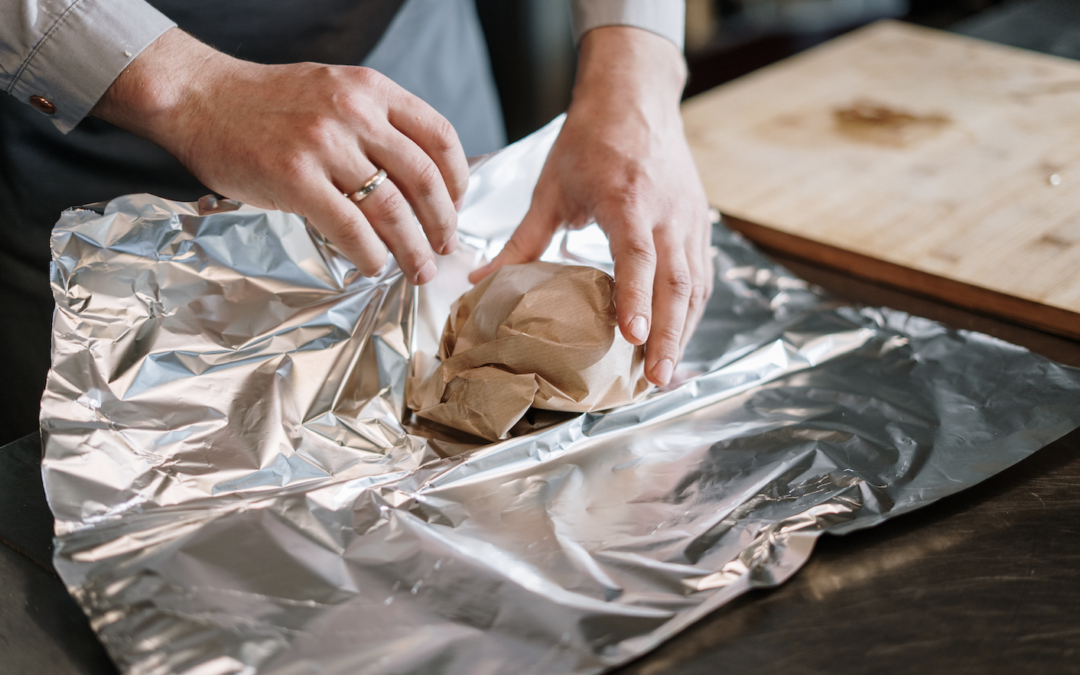
Do a quick Google search on the safety of cooking with aluminum foil, and you’re bound to see the same message. There’s nothing to worry, it’s perfectly safe, they all say. Sure, aluminum does leach into your food, but our bodies can take aluminum in low doses.
But a deep dive into other articles and credible studies old and new confirm we should be concerned. That even in small amounts, aluminum can pose health hazards, especially to those who have history of Alzheimer’s, have chronic diseases, and to small children.
Here’s what you need to know about the health hazards and safety issues of using aluminum foil in cooking.
Fact checked: aluminum does leach into food
We use aluminum foil for cooking and baking. It’s efficient, convenient, easy-to-use, and makes cleanup a cinch. But the fact is, aluminum does leach into your food when used in high temperature, and when acidic food is cooked.
This was found in various studies, including Food and Science Nutrition (2019), and the International Journal of Electrochemical Science (2012).
In both studies, they found that the higher the temperature, the more aluminum enters the food. Acidity is a major factor too, as acidic ingredients like tomatoes, and spicy and vinegar marinades makes it easy for the foil to break down and dissolve into food.

At the end the researchers concluded that the contents found among the samples are not alarming, though the “increase was measured up to 40 times.”
It also came with a warning: that aluminum can represent a risk for younger children and those diagnosed with certain ailments, such as renal failure.
Still, despite these studies, aluminum in cooking is still being declared safe, which begs the question: where is this coming from?
Aluminum not toxic for humans
The answer? As what most of these articles argue, it’s not about the fact that aluminum is getting leached, but about how toxic it is for us humans.
According to the World Health Organization, levels of aluminum below 2 mg per 2.2 lbs. of body weight is considered safe. This means we can safely intake 40 mg of aluminum per kilogram per body weight per day. That’s a lot of aluminum to intake, more than 2000 mg for someone with a normal BMI.
That said, it’s next to impossible to derive toxic amounts of aluminum on cooking with foil alone.
Further, the CDC (Centers for Disease Control Prevention) maintains that most aluminum ingested will leave your body as feces or as urine.
Articles published in Clean Eating and Eating Well say we have no cause to worry.
“You should only be concerned about using foil if you’re getting too much aluminum across the board. And if you’re worried about your aluminum intake, talk with your doctor,” recommend an article on Clean Eating Mag, entitled “Is it Safe to Cook with Aluminum Foil?”

Link to Alzheimer’s and other diseases
Another reason to be wary of aluminum foil is its link to Alzheimer’s disease. In a 1965 study, popularly known as the “Aluminum Hypothesis,” they found that aluminum causes neurofibrillary damage in rabbits.
As for humans, scientists have found high concentrations of aluminum in the brain tissues of patients with Alzheimer’s disease.
However, as Healthline explains, as there is no link between people with a high intake of aluminum due to medications, such as antacids, and Alzheimer’s, it’s unclear if dietary aluminum is truly a cause of the disease.
Further, it’s possible that the disease causes aluminum to accumulate, not the other way around. Hence, the “Aluminum Hypothesis” has been largely abandoned by scientists and is now considered a “myth.” (READ: Is the Aluminum Hypothesis Dead?)
There are also a handful of studies that looked into aluminum consumption as a potential cause of inflammatory bowel diseases (IBS), neurological problems, some types of cancer, and bone softening.
But no study was extensive and relevant enough to truly prove aluminum foil as the root and only cause. Instead, these diseases are considered “multi-factorial.”

So, should we stop using aluminum foil for cooking?
Despite the conflicting studies, and the overall lax attitude of the general public, we think of it this way. We would want to avoid unwanted, unnecessary and excess chemicals in our diets as possible. And even if it’s safe in small amounts, how will we keep count?
In a family who share meals, we have different health statuses, so what’s safe for one might not be safe for another, especially for small children.
Besides, this journal found that aluminum can potentially enter the brain through blood, people at risk for Alzheimer’s may want to limit cooking with foil, while the journal of Neurotoxicology sums it up well—“avoidance of aluminum exposure, when practical, seems prudent.” At the end of the day, better safe than sorry.

Besides, there are safer and more eco-friendly alternatives to aluminum foil. Here are your safe foil alternatives:
1. For lining the pan for baking and roasting: silicone mats make great non-stick surfaces. More importantly, they’re reusable. Silicone mats are safe to use for up to 480 degrees Fahrenheit.
2. For covering dishes in the oven: Buy lidded casserole dishes so you don’t have to use aluminum to cover food while baking or roasting. You can also use an inverted cookie sheet and place on top the casserole dish when necessary.
3. Use parchment paper instead: parchment is a great replacement for aluminum foil. It’s grease-resistant and moisture-resistant. It’s non-toxic, and can withstand high temperature for up to 420 degrees Fahrenheit. You can use it to accomplish a variety of cooking tasks, not just for lining baking pans.
4. Use a grill gate or grill basket: instead of using aluminum foil, use a grill gate or a grill basket instead for grilling vegetables.
5. Cedar planks: instead of using aluminum foil, cover your food in cedar blanks to infuse the marinade and the smoky flavors when you’re grilling.
6. For baking potatoes: can you bake potatoes without aluminum foil? Yes. You can easily do this by wrapping potatoes in parchment paper, but a quick note: brush olive oil on the potatoes to make sure they will get crispy.
Credits: Photos courtesy of Pexels
Tags
References:
https://www.cleaneatingmag.com/clean-pantry/cooking-tips/is-it-safe-to-cook-with-aluminum-foil/https://www.healthy-holistic-living.com/the-hidden-dangers-of-cooking-with-aluminum-foil-health-implications-and-safer-alternatives/https://www.healthline.com/nutrition/aluminum-foil-cooking#TOC_TITLE_HDR_5https://www.rd.com/article/never-wrap-leftovers-foil/https://www.rd.com/article/cooking-with-aluminum-foil/https://www.huffpost.com/entry/why-you-shouldnt-wrap-you_b_9622502https://www.kevinmd.com/2013/06/grilling-aluminum-foil-health-risks.htmlhttps://www.sheknows.com/food-and-recipes/articles/1125729/cooking-aluminum-foil-toxic/



0 Comments